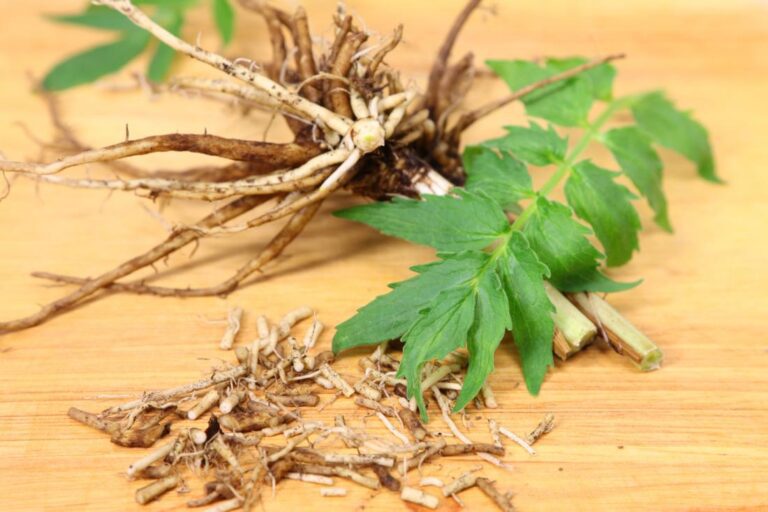Chamomile Tea for Sleep: Benefits, Brewing Tips & Bedtime Rituals

When counting sheep doesn’t work, it might be time to reach for a calming cup of chamomile tea. For centuries, chamomile has been praised as one of nature’s most gentle and effective sleep remedies. This daisy-like flower is more than just a soothing bedtime beverage—it’s a natural solution packed with sleep-inducing compounds that promote relaxation and improve sleep quality.
In this article, we’ll explore the many benefits of chamomile tea for sleep, dive into the science behind its calming effects, and show you how to incorporate it into your nightly routine.
What Is Chamomile?
Chamomile is a flowering herb that belongs to the Asteraceae family, the same family as sunflowers and marigolds. The two most common types used for tea are German chamomile (Matricaria recutita) and Roman chamomile (Chamaemelum nobile). Both are known for their mild, apple-like flavor and calming properties.
Chamomile tea is made by steeping the dried flowers in hot water, releasing aromatic essential oils and powerful plant compounds that work in harmony to relax the body and mind.
How Chamomile Tea Helps You Sleep
Chamomile’s sleep-promoting reputation isn’t just folklore—it’s backed by science.
1. Contains Apigenin – A Natural Sedative
Chamomile is rich in a powerful antioxidant called apigenin, which binds to specific receptors in your brain (benzodiazepine receptors) that help reduce anxiety and initiate sleep. This interaction mimics the effect of mild sedatives—without the side effects of pharmaceutical drugs.
2. Reduces Anxiety and Promotes Calmness
Stress and anxiety are two of the biggest barriers to restful sleep. Chamomile tea acts as a mild anxiolytic (anxiety reducer), helping to quiet mental chatter and ease you into a relaxed state before bed.
3. Improves Sleep Quality
In several studies, people who drank chamomile tea or used chamomile extract reported better overall sleep quality, fewer night-time awakenings, and faster sleep onset. One notable study published in Phytomedicine found that postpartum women who drank chamomile tea for two weeks slept better and felt less fatigued.
Other Health Benefits of Chamomile Tea
Chamomile doesn’t just help with sleep—it offers a range of other benefits that support overall wellness:
- Digestive Aid: Eases indigestion, bloating, and gas, which can interfere with sleep.
- Anti-inflammatory Properties: Reduces inflammation in the body and helps soothe aches and pains.
- Immune Booster: Contains antimicrobial and antioxidant properties that support the immune system.
- Menstrual Relief: Can reduce menstrual cramps and help balance mood swings.
- Skin Health: Helps soothe skin irritation when applied topically or consumed regularly.
How to Brew the Perfect Cup of Chamomile Tea
Making chamomile tea at home is simple—but there are a few tips to get the most out of each cup.
Ingredients:
- 1 tablespoon of dried chamomile flowers (or 1 tea bag)
- 1 cup of freshly boiled water
- Optional: honey, lemon, or a slice of ginger for added flavor
Instructions:
- Place the chamomile flowers or tea bag in a cup or teapot.
- Pour over hot (not boiling) water—ideally around 90°C (194°F).
- Cover and let steep for 5–10 minutes.
- Strain (if using loose flowers), add sweetener or lemon if desired, and enjoy.
Pro Tip: Covering the tea while it steeps helps trap the essential oils and enhances the flavor and benefits.
Best Time to Drink Chamomile Tea for Sleep
The best time to drink chamomile tea is 30 to 45 minutes before bedtime. This allows the calming compounds to take effect just as you’re winding down.
For even better results, try combining your tea ritual with other sleep-enhancing habits, like dimming the lights, turning off screens, or listening to calming music.
Chamomile Tea Bedtime Ritual (Step-by-Step)
Building a consistent nighttime routine can enhance the effects of chamomile tea. Here’s a simple ritual to help you prepare your body and mind for deep rest:
- Set the Mood: Dim the lights and reduce noise around you.
- Unplug: Turn off screens and avoid stimulating content at least 30 minutes before bed.
- Brew Your Tea: Mindfully prepare your chamomile tea while taking deep, slow breaths.
- Relax and Sip: Sit in a quiet space, sip your tea slowly, and allow yourself to unwind.
- Gratitude or Journaling (optional): Jot down thoughts or things you’re grateful for to clear your mind.
- Sleep: Crawl into bed feeling calm, cozy, and ready to drift off.
Who Should Avoid Chamomile Tea?
Chamomile is generally safe for most people, but a few should be cautious:
- Allergic Reactions: If you’re allergic to plants in the daisy family (ragweed, marigolds, daisies), you may react to chamomile.
- Pregnant or Nursing Women: While chamomile is often used traditionally, always check with a doctor before consuming it during pregnancy.
- People on Blood Thinners: Chamomile may increase the risk of bleeding when taken with anticoagulant medications.
Chamomile Tea vs Other Sleep Teas
While chamomile is a top choice for sleep, how does it compare to others?
| Tea Type | Key Benefit | Best Time to Drink |
|---|---|---|
| Chamomile | Calms the mind, reduces anxiety | 30–45 min before bed |
| Valerian Root | Strong sedative effect | 1 hour before bed |
| Lavender | Aromatherapy + anxiety relief | Early evening |
| Lemon Balm | Soothes digestion & stress | After dinner |
Chamomile stands out for being mild, safe, and effective, making it a perfect entry-level herbal tea for sleep.
Final Thoughts: Is Chamomile Tea Right for You?
If you’re struggling with falling asleep or staying asleep, chamomile tea is a gentle, natural, and effective option worth trying. Its calming properties, pleasant taste, and lack of side effects make it one of the best herbal teas for promoting restful sleep.
Whether you’re new to herbal remedies or already a tea lover, incorporating chamomile tea into your bedtime ritual could be the soothing, sleep-enhancing solution you’ve been looking for.





